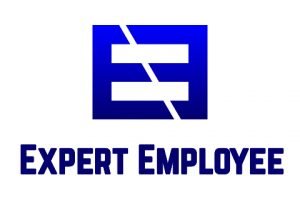This post contains affiliate links.
“Why do you want to work here?” This interview question gets a lot of hate in social media and for obvious reasons. At face value it is a pointless question that only encourages candidates to lie because “duh, everyone works for a paycheck to pay their bills.” However, interviewers continue to ask the question because it can reveal a lot about a candidate and how they view their employment.
When asked at the beginning of an interview, ‘why do you want to work here?’ can set the tone for entire session, and when it is asked near the end of the interview it can leave a lasting impression. It is a deceptively simple question that can be challenging to answer when you are unprepared.
Answer ‘why do you want to work here?’ by starting with a genuine reason why you are interested in this employer and job over other openings. Build from truth and phrase your reply to convey your interest, fit, and commitment. Inject energy into the conversation and show that you are the coworker that others want on their team.

Every employee trades their time and effort for money, that is the basis of all employment, so candidates need to move their thinking beyond the obvious. Jaded responses only convey that you are desperate and “looking for a job, any job” which only really succeeds when the employer is equally desperate and “looking for any warm body to fill this position.”
Instead, you want your response to “why do you want to work here” to move the conversation forward for the employer so they are more interested in you as a candidate. When you include details about your priorities and career interests this question can also prompt a discussion that also helps you learn insights about the job and company culture.
The Many Ways ‘Why Do You Want To Work Here?’ Gets Asked
‘Why do you want to work here?‘ gets worded in many different ways but always with the same underlying meaning – why do you want to work here at this job over similar jobs at similar companies?
- Why do you want to work here?
- Why this company?
- What do you know about our company?
- Why do you want this job?
- Why are you interested in this role?
It may seem like a one-part question, but the best answers convey that you have some knowledge about the company business and the responsibilities of the position. The interviewer wants to know that you are a good fit for the company culture and to meet the challenges of the position in the job posting. Show that you will be a strong addition to the company and are a coworker that others want to have on their team.
Why Employers Don’t Simply Ask What They Want To Know
Candidates rant on social media about the ineptitude and nonsense of asking one question when the interviewer really wants to know about something they didn’t directly ask. This simplistic view misses the point – how candidates work is just as important (maybe more so) than their qualifications and experience.
Only the worst employers view their staff as drones that should simply do what they are told. Hiring managers want employees that think for themselves within their scope of responsibility and overcome obstacles to get their work done without constant handholding.
Sure, interviewers could simply ask ‘what do you know about our company?‘ and many do, but that is only one aspect to the question. By asking ‘why do you want to work here?‘ the interviewer doesn’t limit how candidates respond and their answers are more informative to the hiring process.
Start With a Genuine Reason Why You Prefer This Employer and Job
When you are looking for a job it is easy to fall into the trap of applying to every open position but this is the equivalent of going into a crowded bar and announcing “hey everyone, I’m here looking for a date so let me know if you are interested.” It screams desperation and is not successful. There needs to be a certain level of thought and consideration that goes into each application or it is wasted effort.
Learn About the Employer

Spend a few minutes to read the company’s webpage on their About and Careers section. Every employer has an identity of how they define themselves – who they are and how they want to operate. Even when the reality doesn’t measure up to their corporate values, those concepts are important to understand.
Expert Tip: Successful candidates go into the interview ready with essential facts and insightful questions. Streamline your preparation using our Expert Guide To Researching Companies in 30 Minutes or Less.
Walmart is the low-cost leader, Burger King flame-grills their burgers, Lexus is a luxury brand, Kroger is fresh for everyone, Amazon crafts the customer experience, etc… When you apply to Starbucks it is important to know that their goal is to ‘share great coffee with our friends and help make the world a little better.’
Once you have learned a bit about the company, think for a minute about the possible pros of working there. Even when the company values do not inspire you to volunteer your time for free, there is always some reason why you are interested to work there:
- I like this company because everyone has treated me well every time I’ve visited.
- I like this location because it is 15 minutes closer than my current job.
- I like how this company offers flexible schedules.
- I like how this company pays a livable wage and benefits are available to part-time staff.
- I like that this company is young and still growing, the opportunities are exciting.
- I like that this company is large and established, that comes with a certain level of predictability in their operations procedures.
Not everyone will feel a swell of emotion after reading the company mission statement and that is ok – practical considerations are just a valid as identifying with aspirational corporate values.
Learn About the Job

Now move on to the job itself and consider what interests you about this position. Read the job description completely and identify the factors that matter to you.
Expert Tip: Job postings describe the ‘perfect employee’ that simply doesn’t exist. Avoid the most common mistakes candidates make before they even apply for the job. We decoded each element inside the job posting so you can apply with confidence.
- I enjoy working on <item> as one of my responsibilities, I like that this position has <item> as the primary function.
- I’ve been successful doing <xyz> and this job is a logical next step in my career.
- I like that this job is physically active, I don’t want to sit at a desk.
- I prefer working at a desk where I can organize my workspace and be productive.
- I like working second shift because all my classes are in the morning.
Many people get stuck on this point because they can’t get past the basics, but everyone has preferences. A good way to rephrase the question it to think of what attracted you to this company and position? Try to identify how this position is better than other choices, but don’t trap yourself by thinking it has to be the ideal situation. This job probably isn’t the perfect job at the perfect company, but how is it different from your other options?
- I prefer serving because I like knowing that my effort can be rewarded with bigger tips when I provide a great customer experience.
- I prefer being a line cook because I can continue to practice my skills and learn from the head chef.
- I prefer washing dishes because I can keep my head down and do my work without having to deal with customers all the time.
Sometimes it can be helpful to consider what you don’t want – what would cause you to bypass a job posting and not apply? Once you know what you want to avoid then it is easier to think of what you really value.
Identify Where Your Career Goals & Experience Overlap With the Company Needs
The best bosses always look for where the company needs match with their employees talents and skills because it creates a win-win situation. The employee is doing work they find enjoyable and rewarding, consequently they will do it better and faster which benefits the company.
Now that you have identified the relevant points about the company and the job, look for where they overlap with your objectives and experience. Your interviewer has two main questions in mind so formulate your answer to address both points:
- Explain why you are a good fit for the company
- Explain why you will be a strong performer in the position
Expert Tip: Telling the interviewer ‘I can do this job and here is why‘ is the common approach and makes a weak argument. Instead, speak about the results you will achieve based on your experience. Those are the problems they are actually trying to solve so show them how hiring you will accomplish their goals.
Hiring Managers Want To Find an Obvious Fit

During the hiring process, employers want to find employees that are both capable and well suited for the demands of the position. The question ‘why do you want to work here?‘ is exploring how compatible the candidate is with the challenges of the position and overall company culture.
This is a subjective assessment to be sure, but also an important concept to understand. Both Elon Musk and Jeff Bezos are demanding bosses with high expectations for personnel in their organizations, many call them workaholics.
There are way easier places to work, but nobody ever changed the world on 40 hours a week
— Elon Musk (@elonmusk) November 26, 2018
When you work at Tesla or Amazon you are directly impacted by their philosophies and values, if you are looking for a job that offers predictable 40-hour workweeks than you are going to be dissatisfied. The level of commitment expected can be shocking even for job seekers that have inside connections. The typical Amazon employee lasts one year at the company and Tesla executive turnover has been 27%.
Hiring managers know that when they ask the question directly most candidates are going to say they are happy to work nights and weekends because they know that is expected, even when they don’t really mean it. Consequently, employers ask these open-ended questions as the next best way to get a reading.
Expert Tip: It is great to say candidates should walk away from a potential job when they find a situation that does not match with their career interests, but that isn’t practical when your situation is more dire and you truly need any source of income. By understanding the motivation and intended purpose behind the questions you can better position yourself as a candidate.
Connect Your Experience and Career Goals With Employer Priorities

The best answers to ‘why do you want to work here?‘ merge the company values and job needs with your experience and career goals. If you go into a Samsung interview with the philosophy of “I want to create new designs like nothing the world has seen before” you are likely going to leave disappointed.
Samsung is notorious for their fast-follower strategy – they look at what market leaders are doing and take inspiration (some would say copy). Samsung thrives on a rigidly hierarchical organization and a structure of micromanagement. They value employees that have high dedication to achieving the objectives set by their superiors. If you want to work at Samsung you are best served by speaking in those terms that match the company expectations.
In contrast, Starbucks is well known for their values of corporate and social responsibility and place a high value on treating everyone with dignity and respect. Their employees are called partners and are eligible for top-tier benefits among companies of their size. Talking about wanting to work for an employer that has set out to do more than just earn a profit from employee drones makes sense at a Starbucks interview.
The point is that each company has their own ideology and way of working in their organization. One is necessarily better or worse than the other, they are different – and an employee that thrives in one environment may struggle in another even with identical job functions.
Employment is a mutual agreement, your answer needs to describe how both sides benefit. What are you gaining from the position -and- how you will improve the company.
Sell Your Answer With a Convincing Delivery

Make no mistake, you need to sell yourself during an interview. Speak with confidence in your capabilities and the value of your contributions. The hiring team will only ever match your enthusiasm, but not go beyond it. When you are ho-hum with your interest level they will be ho-hum (at best) about you as a candidate. If you don’t want this job then remove yourself from consideration.
This doesn’t mean that you should to ‘tell them what they want to hear’, but you need to communicate with enthusiasm. Be sincere and truthful in your statements during the interview process.
Speak about your shared values and interests with the company. Every employer has an ego and it is good strategy to tell them when their efforts have been successful in some meaningful way. When a company trumps their technology or customer service in their marketing go ahead and tell them they have the best technology or customer service on the interview when that is the opinion you hold.
Show that you have done some research on the your potential employer. You should want to learn as much as you can within reason. Companies want to employ people that want to be there, regardless of the particular reason for their motivation. If you can’t answer ‘why do you want to work here?‘ before you go to the interview you need to reconsider.
Be Authentic and Realistic
Most people are terrible actors, if you go into the interview trying to fool the hiring team they will probably see right through you. Even if you succeed, congratulations, you put yourself in a situation that will cause problems in the long term.
The best way to have energy in your answers is to be genuine and talk about items that matter to you. If money is your motivator then be honest and say so, then be sure to follow it up with statements about how you are a good addition to their team.
- This position will be a bump in pay from my current job and I see more long-term growth potential. <Company> is an industry leader with benchmark performance in <xyz>. During my work with <employer> I successfully led 3 new product launches, all completed on-schedule and under budget.
Successful candidates are like politicians in the way that they take advantage of a question and turn it to their benefit. ‘Why do you want to work here?’ is an opportunity for you to tell actual stories about what makes you a great and unique candidate.
Your resume provides brief bullet point ‘teasers’ about your career accomplishments. Expand on examples where you delivered results that were far above expectations. Let your personality shine through and show that you are eager to do the job as well as coachable. Take advantage and show your genuine interest to make the company and position successful.
It’s Not Pushy To Direct State What You Want

Good hiring managers want to match the position with realistic expectations from the candidate. There is not a one-size-fits-all answer because every situation is different.
Generally, you want to communicate that you are committed and dedicated to learning and growing with a company, but not when you are interviewing for a temporary seasonal position. In that situation you are better off saying ‘I need the money‘ because the employer knows you are motivated and will show up when they schedule you to work.
Expert Tip: Always use I and my personal pronouns to describe your work experience. Every employer knows that you worked on a team but the team isn’t interviewing for a new job. You are the candidate and you need to claim your contribution to previous work results. An occasional we is fine for context or say ‘this was a team project and I did <xyz>.‘
Use Language That Matches the Level of Importance
During an interview you always want the discussion to uncover the meaningful aspects of the job so there can be an information exchange, and not a festering surprise waiting to cause problems later.
When you are speaking about an item that is a deal-breaker for you, describe it as essential or crucial or necessary. These are requirements that would cause you to walk away if they are not met. For most items, describe them as something you prefer or enjoy or like to do. Avoid using non-specific terms like important that the employer could misinterpret as critical when you have flexibility.
How To Answer ‘Why Do You Want To Work Here’ When the Job Description Is Vague
Job postings don’t always provide the information you need. Sometimes they only give a generic description of the responsibilities and doesn’t even tell you which department. For example, an equipment technician that supports a manufacturing production line is very different than an equipment technician on the facilities maintenance team.
When this happens you want to ask questions early in the process – ideally during your first communication with the employer after your application. Always try to be proactive to get answers to your questions ahead of time but even if they have put you on the spot you can still give a response that puts you in a positive light.
Expert Employee: When I was researching <company name> and this position, I have some questions that I wasn’t able to answer … <ask questions>.
With this response you demonstrate you are engaged in the process and interested to learn more. Unless your questions are blatantly obvious your interviewer will appreciate that you asked the questions to increase your understanding and clarify the details. Too frequently candidates simply give up after meeting the smallest of difficulty.
Expert Tip: Interviews are not interrogations – you are also interviewing the company to see if the job is a good fit for you. Stand out as the strongest candidate and seal the deal by asking these killer questions to the interviewer.
How To Answer ‘Why Do You Want To Work Here?’ When You Don’t Know Yourself
You don’t need to be fully gung-ho and committed to a job before you even interview. In fact, for more experienced positions showing unrestrained enthusiasm will work against you as a candidate.
Go into the interview with the purpose of answering your questions. Learn more about the company, talk about your desire to experience the culture and observe the workplace for yourself and not rely on what the company PR department chooses to share on the website. Show prudent levels of skepticism, be inquisitive and find out the information you need for your own decision process.
Common Mistakes To Avoid When Answering ‘Why Do You Want To Work Here?’
Don’t be too vague. You did the research so show it during the interview. Mentioning specific details about the company from the news is an excellent way to connect with the interviewer – its relevant and shows you are informed. General statements like ‘It’s a great company that I would love to work for‘ could be said about any employer and don’t help you be memorable to the interviewer.
Repeating content verbatim from the company website or job description. It is ok to rephrase the same concept but you need to use you own words – your answer should be familiar but not identical. Regurgitating the exact same phrase screams to an interviewer that you put in the minimum effort required and don’t think for yourself.
Complaining about your previous company or boss. Candidates that are trying to get away from a bad situation appear desperate or petty. Instead, use positive language and forward-looking statements with constructive terms to describe the conditions that you are working towards with your next job. Interviewers can read between the lines. When you say you want to have work from home flexibility it implies that your needs are not met currently.
Being unenthusiastic and not showing enough interest. When you have multiple job offers you can play it very cool during an interview, but otherwise you need to treat ‘Why do you want to work here?‘ with the seriousness appropriate for a consequential life decision. No boss want to hire a seat-warmer that doesn’t care about doing their work so you need to do better than ‘I applied to the open position and you called me back, so here I am for the interview.‘
